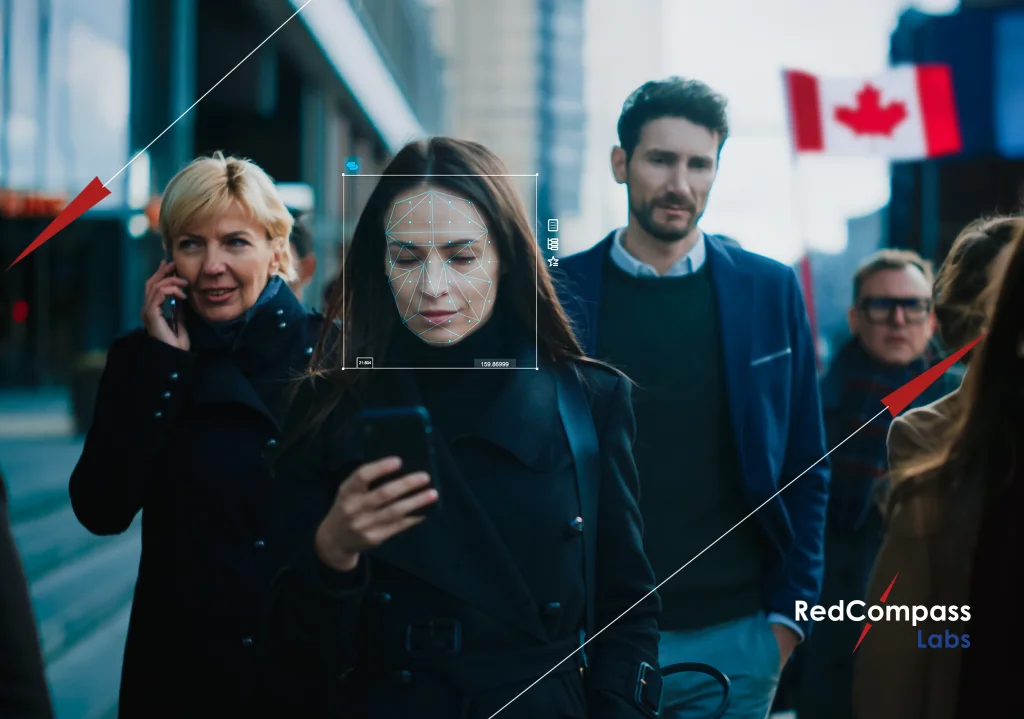TL;DR
-
AI is reshaping consulting: Firms that blend artificial intelligence with deep consulting expertise will lead the future of professional services.
-
Hybrid intelligence drives value: Combining human insight with AI tools boosts quality, speed, and strategic impact in client delivery.
-
Consulting must evolve fast: To stay relevant, consultancies must rethink pricing, talent, and service models in the age of AI.

Isaac Newton first posed the three-body problem.
If there are three celestial bodies—say, two suns and a planet—their gravitational interactions become so complex, it’s impossible to predict where they’ll end up.
That feels like a metaphor for consulting today.
In the past, there were two bodies: Consultancies and The Market. Each managed the other’s gravitational pull.
And within each of those bodies, tensions already existed.
Inside consultancies, employees have always wanted conflicting things.
Consultants want work–life balance. But they also want higher pay. They want purposeful, challenging work in high-performing teams. But they also want the freedom to work from home. They crave stability, but want things to change.
Then there’s The Market.
Sometimes it’s the velocity of change—instant payments, Open Banking, stablecoins, the convergence of A2A, cards, and wallets.
Sometimes it’s the structure itself.
Banks offshored to cut costs. Consultancies were told to price based on ZIP codes—not on outcomes, not on expertise, not on value, but on whether a business analyst sat in Pune or London.
These two bodies—with all their internal contradictions—were just about able to maintain stable orbits.
So what happened?
Most global consultancies raced to the bottom on price.
To maintain profit, something had to suffer. Firms leaned heavily on the rise of strategic procurement—where cost and branding mattered more than quality or expertise. Employees became younger. Cheaper. Partner roles began to vanish.
Consultancies built vast armies to sell low-cost, high-value services of questionable quality.
Then, AI arrived.
And the old orbits that just about made sense do not. We now have a third body. A new gravitational force. A three-body problem.
Everyone’s trying to understand what AI is going to do. There is a lot of speculation. But no one really knows.
A third body, a fourth problem
Think of the printing press. It opened doors. One person could write a few words—and tens of thousands could read them. Martin Luther reshaped society when the Catholic Church split. The printing press turned the world upside down.
And yet today, books are often seen as boring.
Then came radio. One person could speak—and millions could listen, all at once. Franklin D. Roosevelt used it to calm a nation during the Great Depression.
Today, radio is background noise.
Then the internet arrived. Anyone could publish anything, instantly, for the world to read. No printing presses. Just static web pages.
Now, we barely think about it.
Each of these moments was unknowable at the time—but they changed everything.
Now we’re entering the fourth moment.
And it’s a privilege—an honour—to be part of it.
AI will transform consulting, just as the press, radio, and internet transformed communication.
It will amplify voices—whether good, vile, or true. AI agents will carry the message, far and wide.
For the most valuable consultants, AI will be a force multiplier—extending their expertise to clients they once had no time or capacity to serve. And in a world where procurement once favoured large, low-cost firms, AI will shift the economics.
The digital agent of a true expert could be cheaper—and far more effective.
AI will open doors.
It will handle routine work, making it cost-effective to bring in the expert only when deep complexity demands it.
Even then, the blended cost will satisfy procurement.
Clients will see lower costs. Consultancies built on deep expertise will enjoy higher margins.
What’s unclear is how fast this will happen—or what it means for the hundreds of thousands who joined the world’s largest consultancies.
It’s also unknown how long it will take clients to push procurement toward higher quality, backed by AI-enabled cost savings.
But one thing is clear: There is a future for true experts—empowered by the smartest AI.
A future where human intelligence is captured, extended, and applied at scale. Where hybrid intelligence becomes the norm.
Consultancies that fuse deep expertise with AI agents will thrive.
They’ll offer more purposeful, challenging work to their people.
They’ll multiply their impact tenfold—raising the value of their experts and extending their reach far beyond what’s possible today.
Why does this matter?
Since the 2008 financial crisis, the UK has barely grown.
Back then, GDP per capita in the UK was on par with the US. Now? The US has pulled far ahead.
In 2008, UK GDP per capita was around $50,397.69. In 2024, it was £52,636.79. The US started at $48,050.23. In 2024, it was $85,809.90.
This isn’t about boasting or blame. It’s about what that means for people. In real terms, the average UK resident is effectively poorer. Prices have risen, but wages haven’t kept pace.
Payments are a critical part of the solution.
The UK government’s National Payments Vision makes this clear. It calls for new payment infrastructure—rails designed for both low-value and high-value instant payments. Faster, more intelligent payments systems aren’t just technical upgrades.
That may sound like politics, but it’s not. Payments are essential not just to the economy, not just to all these numbers, but to each person’s individual life—and how the UK will continue to compete on a global scale.
The rate of change, the volatility, the uncertainty mean a leap in UK productivity is essential to stop the decline. It is essential to restart the economic engine, which has been quiet for almost twenty years.
And as India’s Unified Payments Interface (UPI) has shown, the right payments infrastructure—paired with intelligent deployment—can drive massive economic transformation.
What’s stopping us?
Four systemic issues in the payments industry have held payments back. And, in doing so, dragged the economy with it. These four systemic issues are not just a bank’s problem. They matter for everyone.
1. The velocity of change in payments
The first is the velocity of change. The rate of change in payments has never been this fast and will never be this slow again. That remains true every single day. Banks cannot keep up.
2. The vendor-bank chasm
Second is that the gap between what banks need and what vendors offer is wider than ever. There are almost no payment modernization programs that go live on schedule, on budget, with the original specification. The entire payments consulting industry exists because of this systemic issue.
3. Smaller banks are getting left behind.
As the rate of change and the cost of change increase, the complexity of change increases. Smaller banks cannot keep up. But they matter.
They matter because some people don’t want to bank on their phone. Some people want to walk in to get cash out because that’s how they interact socially.
Small banks matter because they can provide loans in local communities. Communities that start small businesses. Millions and millions of small businesses that make our world what it is today.
4. A shortage of payments experts.
And finally, there is a shortage of payments experts.
These four industry systemic problems have not changed. But how we will solve them has.
Tomorrow is going to be different
Some payments consultancies have true modernization experts.
They work directly with banks—untangling legacy systems and enabling seamless payments for businesses and people alike.
These are not surface-level advisors. They go deep. They know the schemes inside and out. They understand that even a small change—like updating an address field—can ripple through a bank’s systems.
It can be the difference between hitting the SLA for Faster Payments or ending up in the press for all the wrong reasons.
In February 2025 alone, nine major payment outages made headlines across the UK—affecting millions of people. People who couldn’t get paid. Couldn’t pay their bills.
And yet, many of the big consultancies—with their hundreds of thousands of employees—don’t have the expertise these projects need. They have the brand. They have the price. But they don’t have the depth.
And if they don’t have it in human form, they won’t have it in AI form.
AI will democratize access to experts.
Just as the printing press gave voice to pamphleteers who toppled empires. Just as they, in the words of Hamilton, “turned the world upside down at the Battle of Yorktown.” AI will wash away mediocrity in consulting.
It will open access to smaller, higher-quality consultancies built on real expertise.
The ones who understand the schemes. Who talk to regulators. Who think beyond the rulebook.
There’s a reason the payments consulting industry exists. It solves a specific problem.
Technology—AI—solves another.
Infusing them will create a third way of working.
The Rise of Hybrid Intelligence
AI can write faster than you. It can calculate faster than you. It doesn’t need breaks, vacations, or childcare.
It’s a new way of working—humans and AI, side by side.
The question of our time is: how do we fuse the two?
There’s no single answer. There are many paths.
But this is where it begins.
Hybrid intelligence is the fusion of human insight and artificial scale. It’s the brilliance of the expert, amplified. It’s the reach of AI, directed by people who know what matters.
More and more, we will work alongside AI. And more and more, the lines between what you do and what your AI agent does will blur.
The consultant of the future doesn’t need to know everything. They need to know what matters.
Freed from the menial, they’ll design prompts. Refine edge cases. Curate the knowledge that trains the next generation of agents.
They’ll become a Knowledge Curator. A supervisor. A domain expert who knows how to frame the right thinking, and ask the right questions, in the right format—so the machine can do the rest.
And that is what will make them invaluable.
Want to learn more?
Download our full report on AI and the future of consulting: The Last Consultant.
Want to talk? Get in touch with RedCompass Labs.
We’ve built AnalystAccelerator — the world’s first Vertical AI solution built specifically to speed up payments modernization projects.
Discover more at www.analystaccelerator.ai.
Share this post
Written by

Tom Hewson
CEO, RedCompass Labs
Resources






